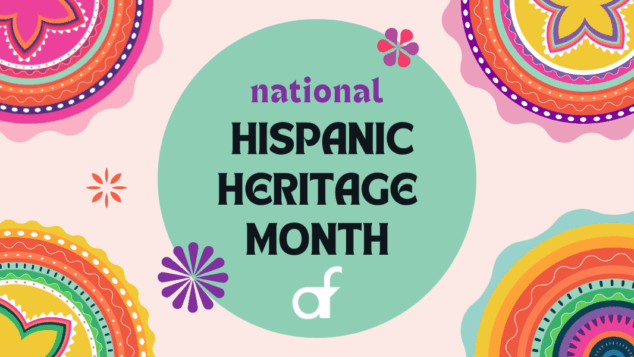Taking DEI from Planning to Action

Diversity, Equity, and Inclusion and creating a welcoming environment has been an important charge at many associations over the past several years. Heading into 2025, it’s safe to say that no one wants to be part of a community where they feel like they don’t belong, and so associations must work to create the conditions that allow members and volunteers to bring their authentic selves to organizations, and to create more diverse industries and professions.
As I’ve spent time talking to peers in association management, it’s become clear that while most folks agree that DEI is important, and make it a value or strategic driver, there is a struggle to put action behind DEI initiatives, which can lead to unmet promises and member frustration.
At the National Association of Personal Financial Advisors (NAPFA), the DEI Initiative began in 2017, and quickly became focused on moving from theory and discussion to action. The following programs and projects are only a few ways to think about moving the needle on diversity initiatives.
In 2020, NAPFA’s DEI Initiative saw a need to create training for its members around DEI in several areas. The financial planning profession is historically a demographic made up of older white men, and serves communities that are typically also older, white, and wealthy. Not only did NAPFA want to equip its members with tools to hire and promote more diverse financial planners, but it also wanted to tackle how to better serve communities that generally weren’t served by its members.
The leadership committee partnered with a mix of consultants, practitioners, and academics to create a training & certificate program that focused on four modules. The modules were on demand courses, focused on the topics of hiring practices, inclusion, people, and culture. Presenters were able to share data, theory, and actionable ways that financial planners could make a difference in DEI. The program also had a live component that was offered in person or virtually and was a way for small groups to discuss the material they’d watched and create actionable plans. Over 100 NAPFA members have received their certification through this program since 2021, and large firms are now requesting stand-alone training for their employees. NAPFA has been recognized in the industry for this work, and it’s been cited as one of the most impactful trainings members have participated in.
I’ve heard my association peers concerned that support for DEI is decreasing, but I would argue that’s not the case. In my experience, the fatigue comes from too many conversations and too few action plans.
Another fantastic way to move DEI plans into action is to consider case studies. Chances are, there are members in your association leading the charge, and highlighting them is a straightforward way to amplify their work and help other members see how they can replicate it. NAPFA completed a project like this last year, entitled “A Welcoming Workplace: Incorporating DEI at Your Firm.” The association asked six firms of diverse sizes, tackling DEI work in different ways, to share their stories and give advice to members who needed assistance getting started on their own journeys. Giving members a voice to share is a powerful tool, and there were many takeaways from the project that any size NAPFA firm could implement themselves. Several participants also made themselves available for a well-attended webinar to discuss their experiences further and answer questions NAPFA members had about how to make their DEI initiatives successful.
NAPFA’s not the only association finding success in the DEI landscape. The Institute of Food Technologists (IFT) has a dedicated staff member on the team who works to launch and sustain DEI communities within the organization. One of the ways this is done is through Member Resource Groups (MRGs) focused on several areas, including early careerists, LGBTQIA+ members, Black/African American & African members, and women members. The objective of these groups is to support the needs and challenges of these communities as they work with IFT to address barriers and inequities across the science of food community. Groups have collaborative space for discussions, and each host regular virtual meet ups around specific topics throughout the year. The MRGs also have events hosted at IFT First, IFT’s annual event, where they can build community and discuss how to further DEI in the science of food space. The expansion of IFT’s DEI efforts has generated significant outcomes. In 2023, IFT’s DEI programs created 140+ volunteer opportunities, formed 4 partnerships with external organizations for DEI-focused webinars, in-person events, and podcasts, and updated several programs across IFT to be more inclusive and representative. Examples include their Career and Compensation Survey and Feeding Tomorrow Fund scholarship program.
In the past 6-12 months, I’ve heard my association peers concerned that support for DEI is decreasing, but I would argue that’s not the case. In my experience, the fatigue comes from too many conversations and too few action plans. Members understand the need for action in DEI, but they want to be equipped with the training and tools they need to further the work. As I said to one group who was frustrated with member perception of the DEI work that hadn’t been done, you can have all the internal conversations you want, but members don’t see that, and if there’s no output, it doesn’t count. Staff and volunteers can easily be trapped into analysis paralysis, where they’re so concerned that they will misstep that they do nothing. I promise you that members will forgive you for mistakes you make when rolling out DEI programs faster than they’ll forgive an association’s perceived inaction on the topic.
When we think about the future of DEI, it’s important that action is front and center of the planning. As association professionals, we understand the importance of focusing on outcomes, and DEI should be no different.
Tags
Related Articles
BAE Chicagoland Kicks Off: Join the Movement!
Black Association Executives (BAE) is officially in Chicagoland, bringing a bold new community to Black...
Celebrating Hispanic Heritage Month with Association Latinos
How to celebrate Hispanic Heritage Month within the association community and Chicago!
Tips for Creating a Welcoming Meeting Environment
Creating a truly inclusive annual meeting means going beyond ADA compliance—discover how one association builds...




